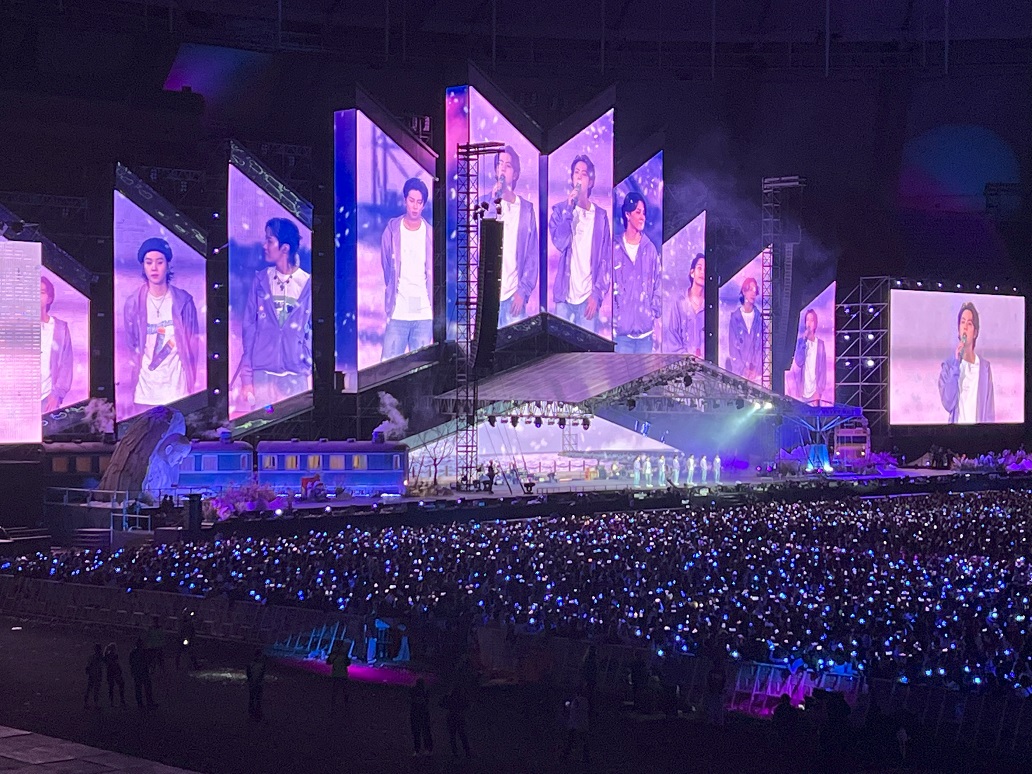By Nabilah Saleh
KUALA LUMPUR, Aug 5 (NNN-Bernama) — When renowned and international best-selling author Paulo Coelho spoke in-depth about the K-Pop superstar BTS during the 3rd BTS Global Interdisciplinary Conference in 2022, his views on the group amazed many.
The author of bestselling novel ‘The Alchemist’ and one of the keynote speakers at the academic conference held in Seoul even described BTS as an open sea, where fans can get together and self-organise in their own ways.
Organised by the International Society for BTS Studies (ISBS) and Universiti Malaya (UM), the upcoming fourth edition conference in 2023 to be hosted by Malaysia is scheduled to be held for the first time in Southeast Asia from 16-17 Aug.
BTS’s distinctive strengths are not only in its engagement with fans via social media and online platforms, but also in the way in which the group has gained the admiration of diverse communities worldwide and how it is expanding South Korea’s soft power across the globe.
In an interview with Bernama recently, UM’s Department of East Asian Studies of the Faculty of Arts and Social Sciences Associate Professor Dr Jimmyn Parc said as this year marks the 40th anniversary of South Korea’s inclusion in the Look East Policy (LEP), the conference is dubbed as a vital component of the “New LEP”.
“Over the years, Malaysia has considered both South Korea and Japan as exemplary models for economic development. While the main focus of LEP has been on the economy, it is crucial to underscore the significant impact of cultural industries not only on promoting culture and soft power but also on stimulating economic growth.
“Korean popular culture (K-Pop), despite initially being on the periphery of the global market, has gradually emerged as a powerful force in shaping cultural trends worldwide. Therefore, it holds great significance to incorporate South Korea’s popular culture and its relevant industries as a vital component of the “New LEP”.
“By recognising the potential of cultural industries, this updated policy approach can harness the power of cultural exports to drive economic benefits for both countries involved,” he said.
Hosting more than 45 scholars from around the globe who will present their papers, the three-day conference – themed “BTS in Southeast Asia” and “BTS and the Future” – will feature discussions with fans and experts on BTS and South Korean soft power, sharing research that will expand the scope and the horizon of BTS studies, as well as the effect of BTS on the well-being of their official fandom – aptly called ARMY.
Parc pointed out that while Korean popular culture has enjoyed significant popularity in Southeast Asia and BTS is undoubtedly a major part of this phenomenon, many scholars have predominantly focused on the trend in Western countries and a few Asian countries like China and Japan.
“Therefore, our intention this year is to shed light on this overlooked aspect. Specifically, we aim to bring attention to Malaysia, which holds a pivotal position within ASEAN and boasts a rich cultural diversity.
“As a result, we strongly believe that hosting the BTS Global Interdisciplinary Conference in Malaysia is not only fitting but also incredibly timely.
“This choice of location will allow us to explore and understand the far-reaching impact and reception of Korean popular culture, with BTS as a prime example, in a region that has long cherished and embraced it. By doing so, we hope to foster greater awareness and appreciation for the cultural connections and influences that transcend borders and resonate across the world,” he added.
Parc, whose current research focuses on cultural industries in Asia and Europe, highlighted that the conference could be further advanced and elevated so that South Korea’s soft power will keep going global.
“Despite the fact BTS is a renowned South Korean boy band, the conference intends to look at them transcending their nationality and focus on the broader themes of their legacy, their influence in Southeast Asian countries, and their future prospects.
Their impact goes beyond borders, evident in the talks made by BTS members themselves.
“BTS’s ability to connect with fans worldwide underscores the power of cultural exchange and the significance of promoting understanding and appreciation between diverse communities.
“Thus, they genuinely care for their fans, regardless of nationality or race, and this inclusive approach has played a pivotal role in enhancing South Korea’s soft power,” said Parc who is also the co-author of The Untold Story of the Korean Film Industry: A Global Business and Economic Perspective, which was published by Palgrave Macmillan in 2021.
The first conference was held at Kingston University in London, England, in January 2020, and California State University Northridge hosted the second edition online due to the pandemic.
At present, BTS members Jin and J-Hope have already enlisted in mandatory military service. The remaining members – namely RM, Suga, Jimin, V, and Jungkook – are focusing on their solo careers.
Registration to join the conference – to take place at UM and the National Art Gallery, Kuala Lumpur – is still open to public until Aug 12 through https://sites.google.com/um.edu.my/bts-conference-kl/registration
— NNN-BERNAMA






